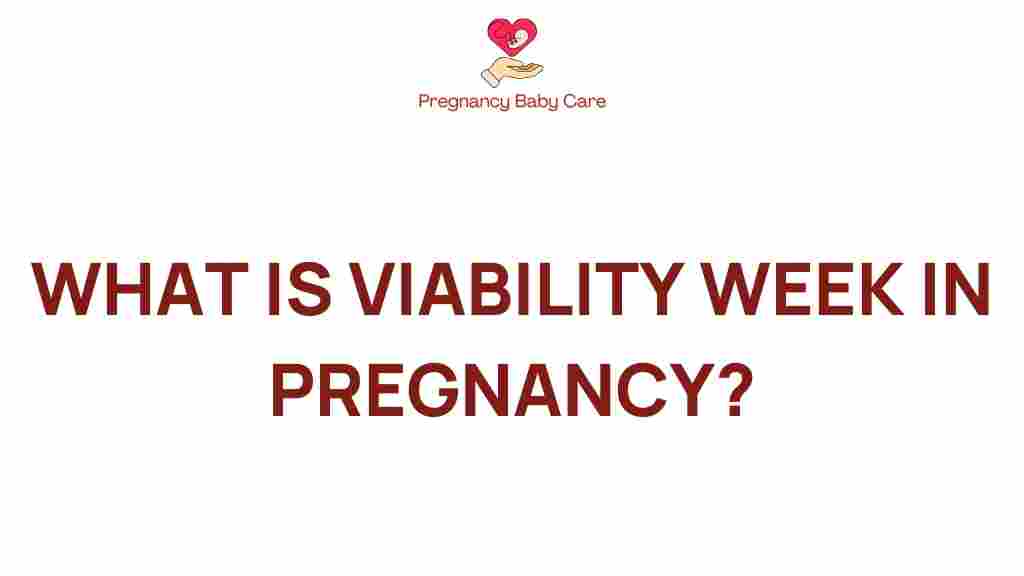Understanding Viability Week: A Pivotal Moment in Pregnancy
Pregnancy is a journey filled with numerous milestones, each marking a significant moment in the development of both the baby and the expectant mother. Among these milestones, viability week stands out as a crucial turning point. This article delves into what viability week entails, its significance in fetal development, and the importance of prenatal care and pregnancy health during this period.
What is Viability Week?
Viability week refers to the point in pregnancy when a fetus reaches a gestational age of approximately 24 weeks. At this stage, the chances of survival outside the womb increase significantly, thanks to advancements in neonatal care. Understanding viability week is essential for expectant mothers as it represents a transition into a phase where medical guidelines for pregnancy health become particularly critical.
Key Pregnancy Milestones Leading to Viability Week
As you navigate through your pregnancy, there are several key milestones leading up to viability week:
- First Trimester (Weeks 1-12): This stage includes conception, implantation, and the initial development of vital organs.
- Second Trimester (Weeks 13-26): This period marks significant fetal growth and development, including the formation of limbs and facial features.
- Viability Week (Around Week 24): The fetus develops enough to have a chance of survival outside the womb. This is a pivotal moment in pregnancy.
The Importance of Fetal Development
During viability week, the fetus undergoes crucial developments that affect its chances of survival. Key aspects of fetal development include:
- Lung Maturation: By viability week, the lungs are developing alveoli, which are essential for breathing air.
- Weight Gain: The fetus begins to gain weight rapidly, which is vital for survival.
- Brain Development: Neurological development accelerates, impacting the baby’s future cognitive abilities.
These factors play a significant role in determining the health and viability of the fetus. Expectant mothers should be aware of these developments as they monitor their pregnancy health.
Prenatal Care: Ensuring a Healthy Pregnancy
Throughout pregnancy, especially as you approach viability week, prenatal care becomes paramount. Regular check-ups help monitor the health of both mother and baby. Here are some essential components of prenatal care:
- Regular Doctor Visits: Schedule routine appointments to track pregnancy milestones and fetal development.
- Ultrasounds: These imaging tests help assess the growth and health of the fetus.
- Blood Tests: Screening for potential complications and monitoring hormone levels is critical.
- Nutritional Guidance: A balanced diet rich in essential nutrients supports fetal development.
Expectant mothers should adhere to medical guidelines to ensure optimal pregnancy health. For more information on prenatal care, consider visiting this resource.
Understanding Gestational Age and Its Impact on Viability
Gestational age refers to the length of time a fetus has been developing in the womb, measured in weeks from the first day of the last menstrual period. Understanding gestational age is crucial as it relates directly to viability and fetal development. Here’s how it impacts pregnancy health:
- Early Gestational Age (1-12 weeks): The risk of miscarriage is higher during this period.
- Mid Gestational Age (13-24 weeks): Fetal structures are forming, and vital organs are developing.
- Viability (24 weeks and beyond): The fetus has reached a critical point where survival outside the womb is possible.
Monitoring gestational age helps healthcare providers make informed decisions regarding prenatal care and potential interventions.
Challenges and Troubleshooting Tips for Expectant Mothers
As you approach viability week, you may face various challenges. Here are some common issues and troubleshooting tips:
- Stress and Anxiety:
- Tip: Practice relaxation techniques such as deep breathing, yoga, or meditation.
- Physical Discomfort:
- Tip: Engage in gentle exercise and maintain a proper posture to alleviate discomfort.
- Nutrition Issues:
- Tip: Consult a nutritionist for a personalized meal plan that supports fetal development.
By addressing these challenges proactively, expectant mothers can improve their pregnancy health and well-being during this critical period.
Conclusion: Embracing the Journey to Viability Week
Understanding viability week is essential for expectant mothers as it signifies a turning point in pregnancy. By monitoring fetal development and adhering to prenatal care guidelines, mothers can enhance their pregnancy health and prepare for the arrival of their baby.
As you progress through your pregnancy, remember that each milestone is an opportunity to celebrate the journey of life. Stay informed, seek support, and embrace this pivotal moment with confidence. For more insights on pregnancy health, consider checking out this article.
With the right knowledge and care, viability week can be a moment of hope and anticipation as you look forward to welcoming your little one into the world.
This article is in the category Pregnancy and created by PregnancyBabyCare Team
